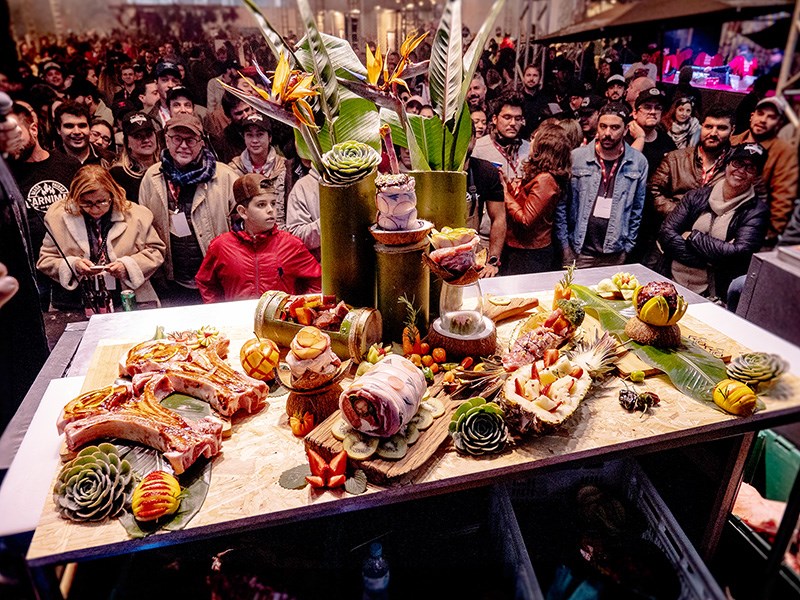Have cleaver, will travel.
A Port Moody butcher is travelling the world and sharpening her passion for cutting meat.
Taryn Barker, who owns The Little Butcher in Newport Village, recently returned from her second Butcher Wars competition. This one, just six months after her competitive butchering debut in Auckland, New Zealand, was in Sao Paulo, Brazil.
Barker said while it was somewhat intimidating to test her skills in a country where meat and barbecue are part of the national culture, the opportunity to learn from master butchers even more ways to make meat more sustainable was too good to pass up.
This was the first time a Butcher Wars competition had been a component of the Churrascada international barbecue festival and Barker said it was an eye-opener.
“They’re like the originators of real barbecue,” she said, adding that puts extra pressure on butchers to get creative with cuts that aren’t embellished with fancy seasonings or toppings.
Brazilians’ particular love for slow barbecue on pits dug into the ground or on lines of burning wood, also provides new opportunity to bring more value to cuts that are demoted to stews or kebabs in North American cuisine, like the top sirloin cap or picanha.
“We’ve become accustomed to fast things,” Barker said of our affinity for steaks and filets that sear quickly.
Barker said bringing back with her knowledge she can pass on to her customers about how to prepare and enjoy some of those lesser-known cuts means farmers can realize more value from the animals they’ve raised.
“There’s so many cuts we don’t utilize as much,” she said. “It really makes me realize this is the right path.”
In Brazil, Barker finished fourth in a field of six butchers from the likes of Brazil, Italy and Australia — two spots higher than she placed in New Zealand— and that has stoked her hunger for more competition.
In fact, Barker is waiting to hear if her tryout to become a part of Canada’s team of six butchers that will compete at next September’s World Butchers Challenge in Sacramento, Calif. was successful. She said the event, which is held every two years, is like the Olympics of butchering.



